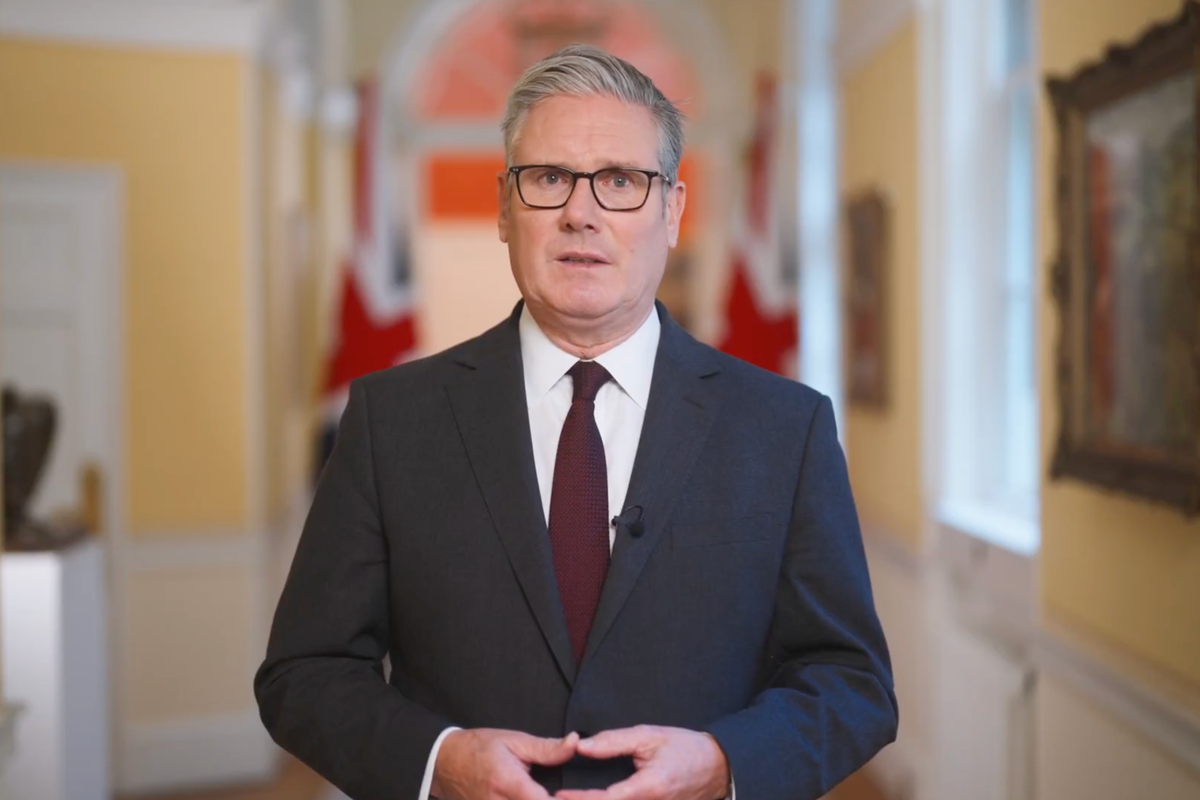The UK’s recognition of Palestinian statehood, solemnly announced by Sir Keir Starmer in a video message on the eve of the UN General Assembly session, honours the commitment he made in July, when he warned of just such a step, should Israel fail to agree to a ceasefire in Gaza and commit to a two-state solution.
That Israel has not only failed to meet those conditions, but veered sharply in the opposite direction with the recent strike on Hamas leaders in Qatar, left Sir Keir Starmer with little choice but to confirm what would amount to a major UK policy shift or risk charges of empty rhetoric.
Starmer’s announcement was given added weight by being coordinated with similar statements from Australia and Canada. France and a number of other European countries are expected to add their voices on Monday. Increasingly, this looks to be the right place for the UK under this Labour government to be positioning itself diplomatically.
How much significance the change will have in practice, however, is another matter. Palestine is not going to become a state tomorrow. It lacks very many of the attributes associated with statehood: a defined border, a capital and a government – although responsibility for this situation is widely shared. Donald Trump’s relative equanimity at his Chequers press conference about the difference between US and UK policy on Palestine also suggests that it is not seen as a big issue in Washington.
For the UK to recognise Palestinian statehood, however, is not nothing, even if it remains in the realm of diplomatic gesture. Both the portentous tone adopted by the prime minister for his announcement and the divergent responses told their own story.
Starmer’s initial threat infuriated Israel, which accused him of playing into the hands of Hamas and rewarding it for the atrocities of 7 October 2023. Israel has regarded the UK as one of its staunchest allies, even as the Labour government has become ever more critical of its operations in Gaza and suspended (a very few) arms contracts. This will cool relations further, but there has not been – and is unlikely to be – anything like a formal breach.
Opposition has also come, understandably enough, from families of hostages still held by Hamas, Jewish leaders in the UK, and from senior Conservatives arguing that now is not the right time.
Recognition has received a warm-ish response from the Palestinian Authority, although the general tone, not unreasonably, given the UK’s key role as the mandate power in 1948 and one of the most vocal supporters of the two-state solution, was “what took you so long?” That question was hardly answered by Starmer, who drew an equivalence between recognition of the State of Israel then and recognition of a state of Palestine now.
The immediate impact could in fact be greatest in the domestic political context, where recognition meets a long-standing demand of the Labour left and could give something of a fillip to a beleaguered prime minister whose party conference is only days away. You don’t have to join cynics suggesting that this might have at least as much to do with the timing as the UN meeting or the ever more desperate plight of Gaza, to see that there could be some rare positive fallout for Starmer.
The reality is, though, that the announcement also highlights weaknesses. For all its ever-tougher language over Gaza, the UK has not been able to influence Israel’s policy towards Gaza or in the region generally one iota. And while recognition may offer some new hope to Palestinians that statehood remains in prospect, there remains as yet no evidence that more countries signing up to recognition will translate into greater international political will.
The UK’s recognition of the state of Palestine at this point is many things. It is a cry of condemnation and despair over Israel’s destruction of Gaza. It is a message intended to revive hope that the establishment of a Palestinian state is possible, and it reassures a particular section of Labour’s parliamentary party that their calls have been heard. It is also a signal that the UK has shifted away from what once seemed unquestioning support for the US stance on Israel, towards the somewhat more critical position of countries such as Canada and France.
What it does not, will not, and probably cannot do, however, is change Israel’s policy towards Gaza in any way whatsoever or accelerate any Palestinian state into being. Regrettably, that, along with the two-state solution itself, looks as far from being realised as at any time in the past 25 years.

